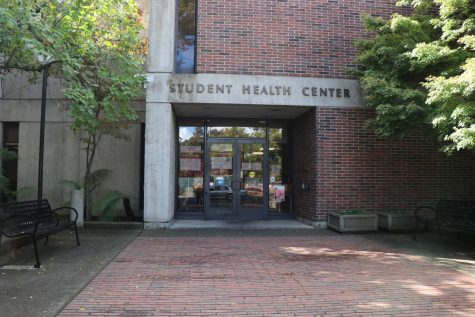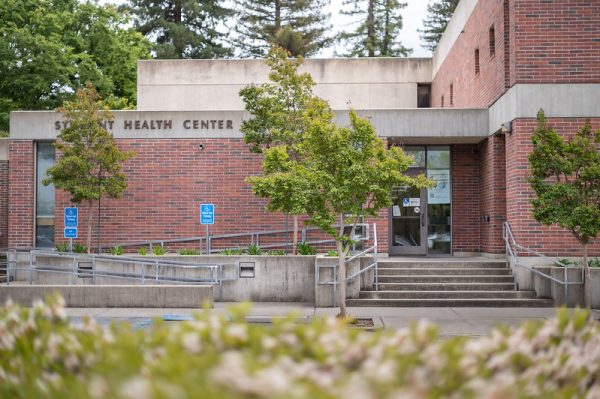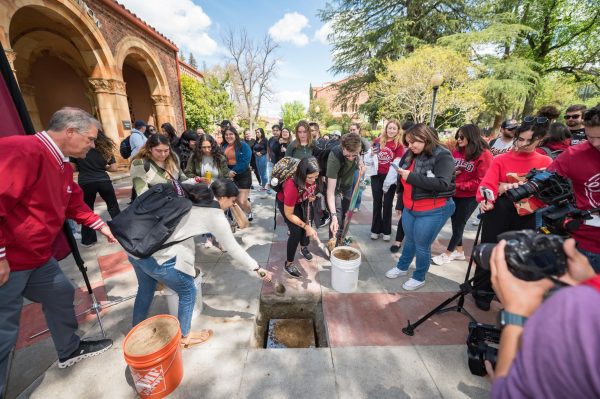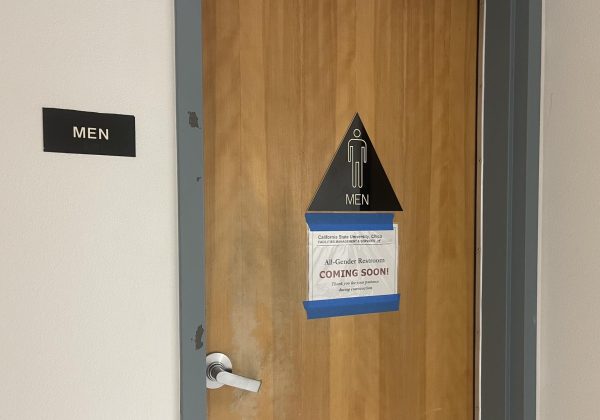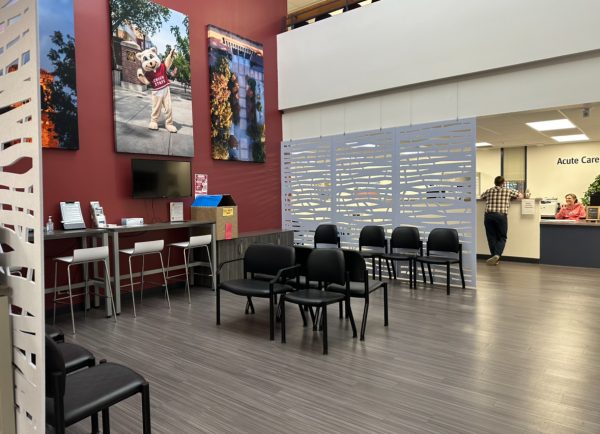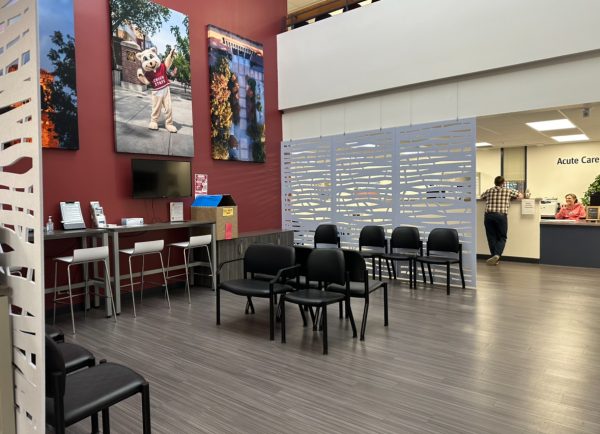Why your major doesn’t have winter or summer sessions
Students walking to class by Plumas and Tehama Hall on March 29.
Chico State offers 42 majors, but typically offers courses from 18 majors during winter and summer sessions. Not all classes are offered during the same semester and a busy workload can prolong a student’s college career. Taking classes during winter or summer break is impractical and even impossible for some majors.
Clare Van Ness, interim dean of Professional & Continuing Education, has been working for Chico State’s administration since 1997, and said she’s helped manage break session courses multiple times before moving to her current role.
Break session courses are on a self support basis, and typically cost more than courses taught during the main sessions — sometimes by hundreds of dollars. A 3-unit course during the spring or fall semesters costs $550, while break session courses cost $950. Grants are offered, but they are limited and only cover the initial $550, so the student would have to pay the remaining balance.
Last winter session the university had about 40 courses and 1,000 students enrolled. Van Ness said the summer session was gaining popularity for a few years but started to plateau at 3,000 around 2020.
“The break session schedule this year is smaller than it has been in previous years,” she said. “It’s a reflection of our overall enrollment that is a little down.”
Van Ness said the number of students enrolled in a college does not dictate which courses are offered during the break sessions.
Eddie Vela, College of Behavioral and Social Science dean, whose college typically has the highest number of break-session courses taught, said the courses must pay for themselves with the minimum students enrolled or faculty could accept a prorated salary and teach the course for less money.
The ideal number of students enrolled in a break session course is 20 to 25, but can be lower if someone agrees to teach the class for a lower pay rate.
“What sometimes often happens whether or not a intersession course actually runs depends on the number of students who sign up because the intersession courses are self support,” Vela said, “which means the students who sign up and the tuition and fees associated with taking the class has to at least pay the instructor.”
Faculty members, deans and the department chairs of each college meet at the end of every semester to discuss the current needs of the students and what courses need to be prioritized, which are the courses with the most waitlisted students or courses needed by graduating seniors. This determines which courses are taught and which are not — it changes each semester.
“The courses offered are not a part of regular faculty or lecturers assignment and expected workload,” Vela said. “It’s entirely up to the department and faculty in the department to determine whether they want to request teaching a class.”
Vela said sometimes faculty are interested and sometimes they’re not — teaching break session courses is extra work that isn’t required — so departments aren’t required to offer any particular class because it’s all based on who volunteers.
“It’s better for students to take these classes during the fall and spring within part of their tuition, rather than taking it in the winter or summer session when there are additional things involved,” Van Ness said.
If students adhere to their academic plan and complete 15 units each semester, then they should be set to graduate without having to take break session courses. The break session courses offered at Chico State are typically four or six weeks long, but break session internships can be the whole summer, so about 11 weeks in total.
A course will not be taught if faculty believe that the workload isn’t amenable to the break session schedule. Vela said it isn’t about the dilution of course materials but the time available to comprehend the concepts.
“It’s basically extra income for faculty,” Vela said.
Melvin Bui can be reached at [email protected] or @MelvinBuii on Twitter.
